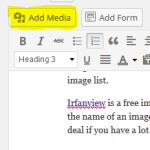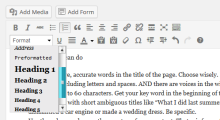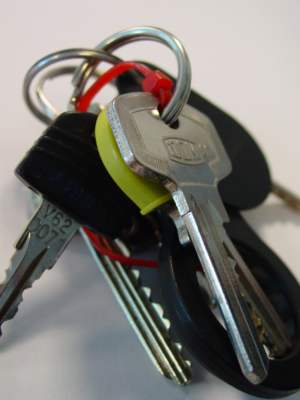Key words aren’t everything. But they sure do help!
Even if you aren’t sure what Google thinks your key words are, you can certainly figure out what you think your post is about.
Get really specific about it—just one or two words will help YOU be clear.
Keep to that idea all the way through the article. Keep looking back at your first line. Are you still on track?
Yes or no? Keep going or restructure. And then use these simple plain-English tips to help search engines put you in the right places.
- Use descriptive, accurate words in the title of the page. Choose wisely. Have no more than 70 characters, including letters and spaces. AND there are voices in the wind saying that number may be reduced to 50 to 60 characters.Get your key word in the beginning of the title.Don’t get cute with short ambiguous titles like “What I did last summer.” It would never imply that you dismantled a car engine or made a wedding dress. Be specific.
- Use those keywords near the very top of your content. That reinforces for search engines–and visitors—what the page is about.It also reminds YOU, while writing the content, what you are supposed to be focusing on. Poynter Institute for Media Studies has an excellent slide show on writing effectively for the internet.
- People understand images but search engines can only read text.Here are 2 ways to help the machines give people the right answers:
- Before you upload, name the image something descriptive.
MGAengineblock-topview.jpg or dovegray-weddingdress.jpg are way better names than DSC0007231.jpg. This has the added advantage that when someone searches the internet for MGA engine block, or dove gray wedding dress, your image (and therefore a link to you page) will show up in that image list.Irfanview is a free image manager that allows you to change the name of an image while you are looking at it. That’s a big deal if you have a lot of images to rename! -
ALT tags, TITLE tags, Captions: Oh, MY!
“ALT tags” are the words that show up on a site when an image doesn’t load for any reason. And they are used by screen readers for people with some disabilities. Google suggests using Alt Tags smartly.
“TITLE text” elaborates a bit on what was established by the ALT text. This is the default language for Pinterest pins. It is suggested that you include the URL to your post here SO it will show up in the Pinterest title.
On the web, like in a magazine or newspaper, captions on pictures get read. And some studies show that they are the most read part of an article—by humans, for sure, and because they’re text, machines read them, too.
How to do this without code?
 When you use the WordPress “Add Media” link, a title will be automatically be named. Add a title tag, and a caption. See that? No code: just fill in the boxes.
When you use the WordPress “Add Media” link, a title will be automatically be named. Add a title tag, and a caption. See that? No code: just fill in the boxes.
- Before you upload, name the image something descriptive.
- Break up big blocks of text. Use key words in headings.Big blocks of text might be easy for machines so read, but not so much people.Did you ever think about how easy it is to read a newspaper where the columns are so narrow?Studies show that visitors mostly only scan content. So because headings and bold words stand out, people notice them.
- Please note: headings, and subheads, are not just bold or colored words. They have specific code attached to them so that the search engines know that those are important words.
 Use the “format” drop down on the WordPress visual editing window (shown at the left) to choose the appropriate heading tag.Each page should have one and only one Heading 1. That’s the title of the page. WordPress adds that automatically. But Heading 2 and 3 can be more liberally used.
Use the “format” drop down on the WordPress visual editing window (shown at the left) to choose the appropriate heading tag.Each page should have one and only one Heading 1. That’s the title of the page. WordPress adds that automatically. But Heading 2 and 3 can be more liberally used.
These tips will not get you to number 1 in search results for one word searches like “coach” or “mechanic.” But they will help you with narrow, specific searches, like the ones your ideal customers use.
And if your ideal customers are not finding you, are you using the normal words that real people use to describe what you do?
That might be the clue.
Got a thought? Or a question?
PS: I’m speaking about SEO at the ADHD Coaches Organization 7th Annual Conference in Phoenix, AZ, May 3. If you’re a coach, check it out.

